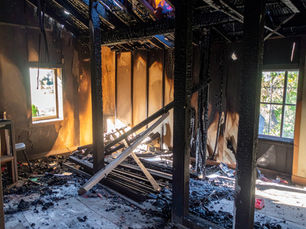top of page
All Articles


Workers' Compensation in WA: A Guide to Renumeration
If you're an employer in Western Australia, you’re legally required to hold Workers’ Compensation Insurance to protect your employees from injury or illness that occurs as a result of their employment. In WA, “remuneration” includes any form of payment or allowance made to or on behalf of a worker, whether it’s cash, non-cash or in-kind benefit.
Oct 20, 20253 min read


Should I Sign This? - Understanding Contractual Insurance Requirements
Whether you're a contractor signing on to a new project, a business leasing a premises, or a supplier entering into a service agreement — chances are your contract includes insurance requirements you’re expected to meet. If you don’t read the fine print closely, or if your policies don’t align with the terms, you could be: in breach of contract, exposed to uninsured liability, or worse — have a claim denied or be dropped from a project.
Oct 20, 20253 min read


Do You Need to Cover Contractors and Subcontractors Under Workers' Compensation in WA?
Under the Workers’ Compensation and Injury Management Act 1981 (WA), any person who works under a contract of service or apprenticeship may be considered a ‘worker’ and must be covered by workers' compensation. This includes some contractors and subcontractors, even if they have their own ABN, operate as a business, or invoice you.
Oct 20, 20253 min read


Understanding Workers Compensation in WA: What Every Business Owner Needs to Know
Workers compensation insurance isn't just another business expense—it's essential legal protection for both you and your employees. In Western Australia, if you employ anyone – whether full-time, part-time, or casual – you are legally required to maintain a current workers compensation insurance policy. This requirement applies from the moment you hire your first employee, regardless of the size of your business or industry.
Oct 17, 20253 min read


Why Market Stall Holders Need Public Liability Insurance
Market stalls present unique liability exposures:
Physical Injuries such as tripping hazards or unstable structures.
Product Liability if your product causes illness, allergies or injury.
Property Damage if your equipment damages the venue or other property.
Food vendors also face additional risks related to foodborne illness and contamination.
Public liability insurance can cover legal costs, compensation, medical expenses, product liability and property damage.
Oct 17, 20254 min read


What Is A Principal's Indemnity Extension?
If you’re a subcontractor in Western Australia, it’s common to be asked by a principal contractor or client to add them as an interested party on your workers' compensation policy, often referred to as a Principal’s Indemnity Extension. This provides evidence that if one of your workers is injured on the job they won't be held liable.
Oct 17, 20252 min read


Accidental Damage vs Listed Events Insurance
Most direct insurers usually offer Listed Events only as standard. While it’s cheaper, it can also leave you exposed when something unexpected goes wrong. With a Listed Events policy, your insurance will only respond to specific events, and if the damage doesn’t fall under one of these predefined events, it may not be covered. Accidental Damage provides broader protection. It includes everything covered under Listed Events, plus unexpected, unintended, and unforeseen damage.
Jul 29, 20253 min read


What You’ll Need to Make a Home & Contents Insurance Claim — With Help From Your Broker
If something unexpected happens — like a storm, theft, or accidental damage to your home — submitting a home and contents insurance claim may feel overwhelming. But that’s exactly what your insurance is there for. Start by telling us: a brief summary of what happened, provide photos or videos of the damage, list damaged or lost items, provide repair or replacement quotes (if available), and provide police report details if relevant.
Jul 29, 20252 min read


What to Do If a Public Liability Incident Happens
If someone is injured or their property is damaged due to your business activities, you may be faced with a public liability incident. Here's what to do: ensure safety first, record the incident details, take photos, do not admit fault or liability, and contact your broker as soon as possible.
Jul 29, 20252 min read


What to Do After a Car Accident
If you’ve been involved in a motor accident and believe you’re not at fault, it’s important to take the right steps straight away. This helps protect you legally, support your insurance claim, and recover your costs sooner. Make sure everyone is safe, collect important details at the scene, report the incident to police, and contact your broker as soon as possible.
Jul 29, 20252 min read


Making a Claim: What to Do When a Workplace Injury Happens
Workplace injuries can happen in any business — and when they do, it's critical to act quickly and correctly to look after your workers and meet your legal obligations. Firstly, make sure the worker gets medical attention. Secondly, complete a claim form, obtain a First Medical Certificate and sign a Broker Consent form. The employer must provide the broker with an injury report and the broker will lodge the claim with the workers' compensation insurer.
Jul 25, 20253 min read


Making a Claim: Should You Take a Cash Settlement or Let the Insurer Handle Repairs?
When making an insurance claim you may be given two options: taking a cash settlement or letting the insurer handle the repairs. Both come with benefits and pitfalls that affect your finances, timelines and protection. Talk to your insurance broker to help understand the repair scope and payout estimate, flag any conditions that may affect your choice and help advocate for you if any issues arise during the process.
Jul 25, 20253 min read


What is EPS — and Why Telling Insurers About It Really Matters
EPS stands for Expanded Polystyrene — a lightweight, rigid foam material often used in building construction. You’ve probably seen EPS as coolroom panelling, ceiling or wall insulation, wall sheeting or cladding, internal sandwich panels for factories, or external cladding. EPS is considered a combustible material and if exposed to fire or high heat, it can ignite and spread quickly. Because of this, buildings with a high percentage of EPS are considered higher risk by insure
Jul 25, 20253 min read


Do You Get More on a Claim with a Broker?
When it comes to insurance, most people focus on the premium — but the real value of your policy is tested at claim time. Policyholders with a broker often receive a higher percentage of their claim paid out than those using direct insurers. Industry data shows that individuals or businesses working with a broker are more likely to have their claim paid in full (or close to full), avoid unnecessary disputes, exclusions, or short payments, and receive faster resolutions with f
Jul 25, 20253 min read


Why Having an Insurance Broker Can Keep You Protected — Even If You Miss a Renewal
Having an insurance broker on your side means you’ve got someone working behind the scenes to make sure you don’t get left uninsured. Insurance brokers track your policy dates for you, follow up more than once, can renew based on existing information, can often reinstate a missed due date and know which covers are too risky to let lapse.
Jul 25, 20252 min read


How Do Direct-to-Market Insurers Offer Lower Premiums?
Direct insurers sell insurance straight to customers, without using brokers or intermediaries. They generally operate online or through call centres and offer standardised, off-the-shelf policies. Because direct insurers don’t use brokers, they save money on broker commissions, fees for tailored advice, relationship management and claims support. To keep premiums low, direct insurers simplify their products and reduce how much risk they cover meaning you may not be fully cove
Jul 25, 20253 min read


Why Your Commercial Strata Property Must Be Insured Under a Strata Policy
If you own a commercial unit or office space in a strata building, your property must be insured under a strata insurance policy, not a traditional Commercial Property Owners policy. Because the building and infrastructure are shared, insurance must be arranged through the owners' corporation or body corporate, under a strata insurance policy. A standard commercial policy is designed for freehold property, where a single owner is responsible for the entire building and land.
Jul 21, 20253 min read


Understanding Informed Consent: Important Changes to Insurance Broking
From July 2025, insurance brokers across Australia will need your explicit consent before receiving any commissions for arranging your insurance. This new requirement reflects our industry's commitment to transparency and putting our clients first. It's important to note that there are no additional costs to our clients and the service you receive will remain unchanged.
Jul 21, 20252 min read


What is Run-Off Cover?
Run-off insurance is a continuation of your Professional Indemnity Insurance, designed to protect you against claims made after you’ve stopped operating or providing services. So if you cancel your policy when you retire or wind down, and a claim comes in later — you won’t be covered. That’s where run-off comes in.
Jul 21, 20252 min read


Who Needs Professional Indemnity Insurance?
If you give advice, provide a service, or make professional recommendations as part of your business — you could be at risk of being sued if something goes wrong. That’s where Professional Indemnity (PI) Insurance steps in.
It can cover legal costs, compensation, breach of duty or negligence, mistakes or errors and misleading conduct.
In some sectors, Professional Indemnity (PI) insurance is mandatory by law or industry regulation, or even required in contracts.
Jun 27, 20252 min read
bottom of page